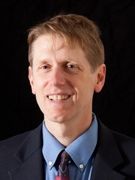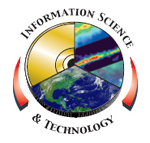
Please Note: The content on this page is not maintained after the colloquium event is completed. As such, some links may no longer be functional.
Chris Lynnes
Big Data Challenges and Solutions in EOSDIS
Wednesday, September 14, 2016
Building 3 Auditorium - 11:40 AM
(Coffee and cookies at 10:30 AM)
The Earth Observing System Data and Information System (EOSDIS) has been challenged by Big Data since its inception in the early 1990s. The data Volume challenge applies to both storage and distribution, keeping pace with Moore's Law. As a result, volumes have increased three orders of magnitude over two decade and will likely increase another order in the early 2020s. Currently, several cloud computing prototypes are underway within EOSDIS, aiming to address the Volume challenge for both EOSDIS and its end user community. Variety within EOSDIS is even more challenging, as it is often resistant to pure technology solutions. EOSDIS approaches the Variety problem via a federated architecture, with distributed, discipline-focused science archives, which are supported by common EOSDIS infrastructure components. The result has been development of several key tools to support discovery, access and visualization which follow federated design patterns themselves.
Chris Lynnes received a Ph.D. in geophysics from the University of Michigan. After working for three years in forensic seismology for DARPA, he joined the Goddard Distributed Active Archive Center as a contractor in 1991, becoming a civil servant as the Chief Systems Engineer for the Goddard DAAC in 1994. He then moved to the Earth Science Data and Information System project last year as an EOSDIS System Architect. Over the last two decades, he has developed science data processing systems, data archive systems, search interfaces and engines, and data analytics and visualization systems.
IS&T Colloquium Committee Host: Keith Keller
Sign language interpreter upon request: 301-286-7040
